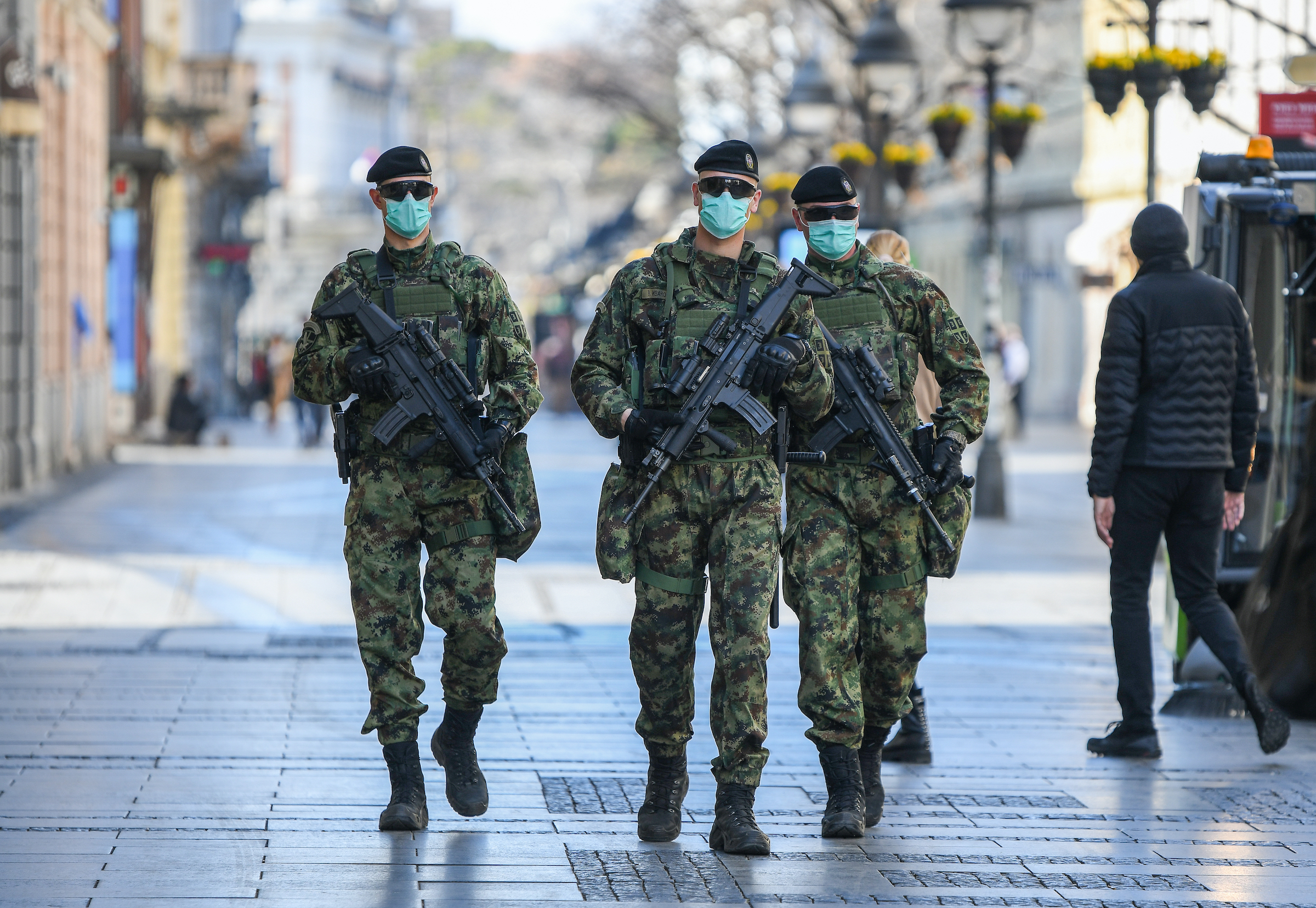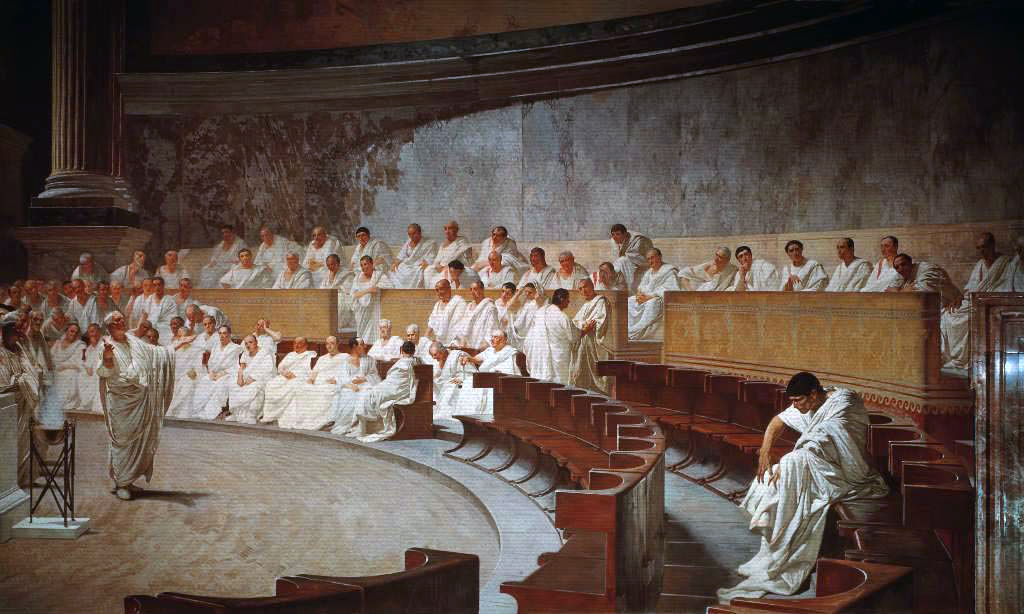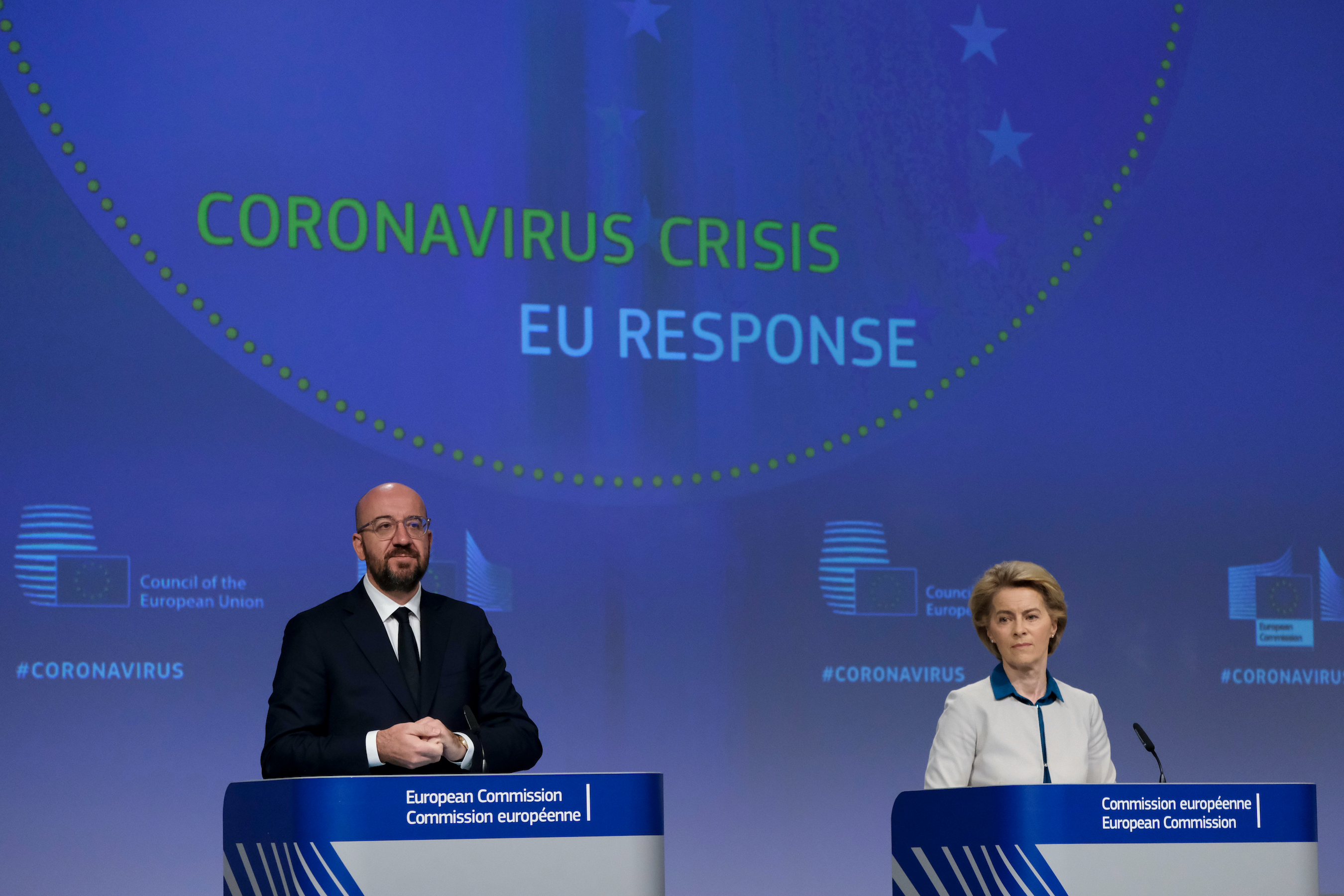Emergency politics can be understood as when actions departing from convention – whether that’s the law or simply conventional politics – are rationalised as urgent and necessary in order to fend off some type of threat. One might describe it as a simple formula that exceptional times demand exceptional measures, and those exceptional times could be any number of things: war, natural disaster or perhaps an economic crisis.
The other half of the formula is that exceptional measures are apparently required under those circumstances. Again, those might be any number of things, but often they would involve concentrating power in a certain leader or a small group of leaders, perhaps with the idea of speeding up decision-making. It might also be understood that under those conditions, leaders should be relatively unencumbered to act at their discretion; for example, they should be able to step outside the law or the normal procedures of politics. In one way or another, they claim they should be less constrained than they would be under normal circumstances.
Emergency politics in the 21st century
One way of thinking about politics in the 21st century is to say that it’s all been emergency politics almost from the very beginning, starting with 11 September 2001. Certainly, in intellectual reflections on politics, that moment coincides with a great deal of interest in ideas of emergency rule and a return to the classics for thinking about exceptionalism. But it’s not just 9/11. It’s the economic crisis that broke with 2008, the financial crash, and everything that followed it. Most recently, it’s the coronavirus pandemic and everything that makes up the story of 2020.
There are other episodes within that period where the crisis is less obvious, or somewhat constructed, critics might say. In the case of migration in the mid-2010s, you once again see this formula of departing from normal forms of politics. These situations, which are perhaps not a crisis from everyone’s perspective, nonetheless become the occasion for exceptional measures that depart from how politics is normally conducted in the name of an urgent threat.
Theory versus reality
Emergency politics is about concentrating power. That often means bringing executive actors to the fore – individual leaders or executive power in general – very often on the understanding that this is a temporary situation. In other words, it’s already in the logic of exceptional times requiring exceptional measures that at some point one will move beyond that; the exception will be concluded.
Many efforts to think more theoretically about emergency politics have often included this notion that it’s temporary and perhaps derives its legitimacy from this fact. It’s often said that whatever is done in an exceptional period should not have lasting consequences. It should be reversible – it should not change a State’s constitution, for example – and after a period of exceptional measures it should be possible to revert to something like the status quo ante.
That may be the ideal, but it’s often less clear whether that’s possible in practice, or whether that’s what those who are in charge of emergency politics would like to actually see. That’s why emergency politics has often been a source of concern for those who have wanted to theorise it. It needs to be regulated, or at least one should be aware of the potential costs that come with unconstrained power, even for a delimited period.
Can emergency politics be legitimate?
This is a long-standing question in the history of political thought. A good thinker in that respect is Machiavelli. Of course, many people have written about emergency politics, but Machiavelli was one of the key individuals to thematise this question. He took great inspiration from the Roman Republic. He wanted to find a model of how emergency rule could be rendered acceptable and how it could be constrained without doing lasting damage to the polity that undergoes it. In the Roman Republic, he found a model that offered that promise. It was a way of constraining emergency rule while nonetheless protecting the Republic in times of great peril. This was, of course, the ancient Roman institution of dictatorship.
Dictatorship in the Roman Republic
We think of “dictatorship” today as a scare word, something pejorative, but in its origins, dictatorship was a more neutral category. As Machiavelli read the ancient Romans, it was the model they had developed for dealing with situations of crisis. The dictator was a leader who would be put in power for a delimited period of time, often six months, and who was expected to act with discretion to do whatever was necessary to deal with the threats of the day. Often this threat was war, or possibly civil war.
What was attractive for Machiavelli was that this was a model that seemed to minimise the dangers of a poisonous legacy for emergency politics. In other words, the dictator was someone who was chosen by someone else, not self-anointed. The Roman Senate would declare the emergency and appoint a dictator for a period of time to do what was necessary to stabilise the situation, again with the notion that while the dictator might be able to do unconventional things, perhaps even operate outside the law, they shouldn’t be able to change the constitution; therefore, whatever was done would be reversible.
How emergency rule can go wrong
Machiavelli wasn’t unaware that in some accounts this was part of the downfall of the Roman Republic. The danger was that what started off as an institution for a limited period of time – six months, the campaigning season for a military conflict – could become a lasting institution. It could slip into dictators who didn’t go away when they were told: the Caesars, the permanent figures of tyranny.
It seems Machiavelli was drawn to this model partly because it promised the restraints that have always been sought for this type of exceptional rule, but also because it offered lessons for how exceptional rule could go wrong. Today, we may also be concerned that measures that are instituted in the name of emergency – whether that’s concentrating power in governments, introducing new policies or indeed undoing old policies – may have much more long-term consequences than initially thought.
The interesting question to ask would be whether modern crises have the same form as those in the past. Are we dealing with situations that one can hope to resolve over a period of six months, one year, or whatever the magic figure might be? Or conversely, are we dealing with different forms of challenging, extreme circumstances – perhaps related to the pathologies of capitalism, the pathologies of modern representative politics or, indeed, climate change – where it may be less plausible to imagine that stability can be restored after a certain period of time?
These may be profound problems with long-term tendencies that are unlikely to be resolved by any type of emergency government operating for just a period of months or years. If that’s the case, then one might fear that empowering executives to do big gestures in short periods of time will be an insufficient way of dealing with certain long-term problems. Similarly, if the problems at hand are not exceptional circumstances but endemic problems of modern societies, any effort to treat them as though they were merely passing circumstances might actually result in empowering government executives in a much more lasting way because it will never be possible to call off the emergency.
Such problems are too deep to expect a natural moment of resolution. This is one of the limits of classical analogies where one could imagine a crisis could be superseded within a foreseeable period of time. We have to ask ourselves today whether the crises we encounter take that form or whether they are more profound. If they’re more profound, perhaps that would be one reason to be sceptical of emergency forms of government.


